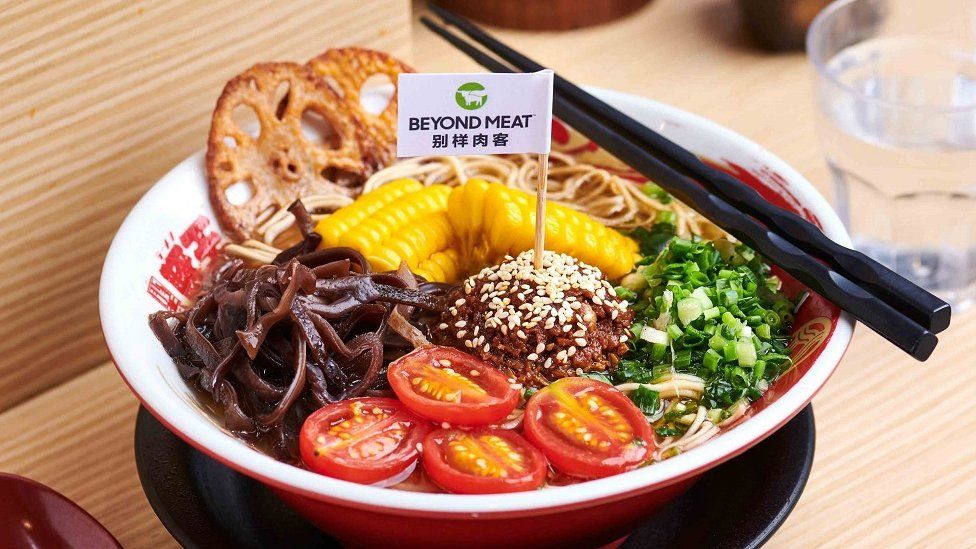By Ye Zhanhang
The meat alternative industry has not gained traction in China, while it slows down worldwide.
The plant-based meat market in China is slowing down after much hype, as smaller companies find it difficult to maintain consumer interest.
The downturn of the plant-based industry globally has led to the collapse of Chinese startups, previously favored by both foreign and local investors.

Aiqicha, a Chinese enterprise database, reported that Hey Maet, a Shanghai-based plant-based meat brand, shut down after losing its business license in April. Zhenmeat, a Beijing-based brand, hasn’t introduced any new products since 2020, and its official WeChat account hasn’t been updated since September last year.
Despite this, China has not been a successful market for major foreign plant-based brands, such as Beyond Meat and Nestle’s Harvest Gourmet. Beyond Meat’s best-selling product on Tmall, an online marketplace, has sold under 600 units monthly.
Plant-based meat is made from ingredients that don’t include meat, like soy, peas, and wheat gluten. Supporters claim it’s a healthier and eco-friendlier substitute for traditional meats, but opponents contend that it’s unhealthy because it’s processed. Beyond Meat’s Nasdaq listing in 2019 triggered the establishment of many domestic plant-based start-ups in China, leading to the meat alternative’s increased popularity. As consumers became more aware of the environmental and public health issues associated with meat consumption, particularly among young people, interest in meat alternatives grew at the start of the pandemic.

Plant-based meat products were introduced by major foreign chains in China for the first time, including Starbucks, KFC, and Family Mart. More than 5,000 companies were reported in the sector in a 2022 industry report.
** Click here to read the full-text **









